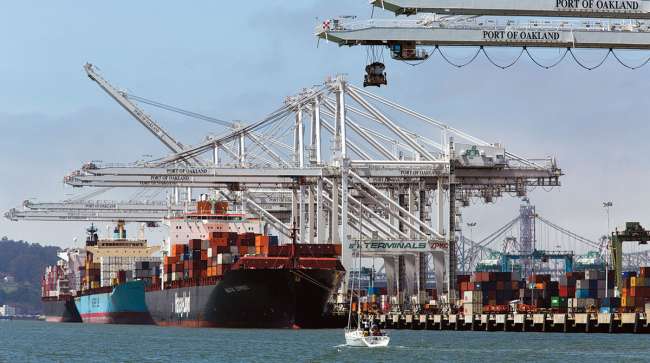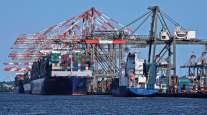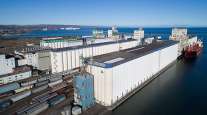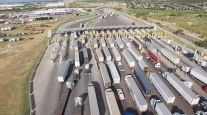Senior Reporter
West Coast Ports, USDA Offer Incentives for Agriculture Shipments

[Stay on top of transportation news: Get TTNews in your inbox.]
The Port of Oakland, along with those in Seattle and Tacoma, Wash., and the U.S. Department of Agriculture said they are working together to provide financial incentives for U.S. growers to ship agriculture products through the ports.
In an announcement June 2, the USDA announced it would pay shippers $200 for every container of exported farm goods. Exporters sending perishable food products overseas will receive $400 per container and exporters will also receive an additional $125 for every empty container they pick up at a designated Oakland storage depot.
“Both the Port of Oakland and the Northwest Seaport Alliance in Seattle have been identified as key gateways for American-grown agricultural commodities, and each has experienced significant challenges with the flow of containerized agricultural commodities and products,” U.S. Agriculture Secretary Tom Vilsack said. “While USDA’s per-container reimbursements will not cover the full cost of moving and storing shipping containers, the assistance provided will help ensure American-grown agriculture products can once again efficiently move through supply chains to reach global markets.”

Vilsack
Port officials said the restoration of vessel service to Oakland is essential to resolving some of Oakland’s supply chain challenges.
“Our partnership with USDA to open a temporary pop-up yard will go a long way in helping ag exporters,” Port of Oakland Maritime Director Bryan Brandes said. “At the same time, we need the shipping lines to bring back vessel service to Oakland to address the high demand of export volume.”
The port announced agriculture exports have dropped in recent months at Oakland and other U.S. ports because of the ongoing supply chain-related problems.
In the last year the Port of Oakland has seen its overall container volume fall by as much as 10% some months while volume has soared at the ports of Long Beach and Los Angeles.
Oakland officials and others told Transport Topics that this has happened because of the soaring price of shipping imports to the United States as container rates, at the peak of the COVID-19 pandemic had increased from an average of $3,500 per container in 2020 before the pandemic, to, in some cases, more than $13,000.
Want more news? Listen to today's daily briefing above or go here for more info
For shippers, it was more profitable to unload the entire ship at Los Angeles and Long Beach and take the products, originally destined for Oakland as an intermediate stop and move those items by truck, and send the containership back to China or other Asian ports as quickly as possible to get reloaded and make the trip back across the Pacific Ocean. As a result of the increasing prices for shipping items, the shippers have seen their overall revenue and income soar the past year to record levels.
This latest announcement comes just months after the port and USDA announced plans in late January to increase capacity at Oakland, by developing a “pop-up” site to make it easier for agriculture companies to fill empty shipping containers with agriculture commodities. The 25-acre location was designed to help American farmers and other agriculture businesses move their products to market faster. Because of its central California location and the state’s extensive agribusiness industry nearby and with direct rail line to the Midwest, the Port of Oakland has been very popular with the agriculture community for many years, especially when it comes to refrigerated protein exports, such as beef, chicken and pork from the Midwest and grains including wheat, soybean and corn.
The USDA said the payment program will remain in effect through the end of 2022 and exporters will need to submit payment applications through January 2023 to be eligible for reimbursement. The payments will be made through the Agriculture department’s Farm Service Agency program. The USDA said commodities which are produced in the United States for food, feed or fiber and products made from those items, including some forest products are eligible for the fee. However, tobacco products are not part of the program.




